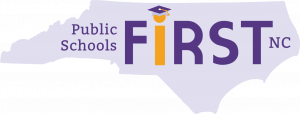
New Report—North Carolina Charter Schools: Undermining Quality Education for All
A close look at charter schools in North Carolina shows that heightened scrutiny of operations, segregation impact, and student outcomes is warranted.
RALEIGH, NC, UNITED STATES, May 2, 2025 /EINPresswire.com/ -- North Carolina charter schools are publicly funded elementary and secondary schools operated independently by non-profit organizations, some of which partner with for-profit groups. Charter schools first opened in North Carolina in 1997. In 2011, despite evidence of uneven student outcomes, lawmakers abandoned the original statewide numerical cap. Where the legislature once had limited the statewide number of charter schools to 100, there is now no cap. Predictably, the number of charter schools in the state has significantly increased. The 2024-25 school year began with 210 operating charter schools. However, with the closure of one charter school in July 2024 and another in September 2024, 208 charter schools received well over $1.18 billion in taxpayer money, even as public-school districts remain underfunded.This new report, North Carolina Schools: Undermining Quality Education for All, examines the three-decade North Carolina charter school experiment. It explores the original justifications for charter schools; analyzes the pedagogical and operational differences among charter schools; considers the mechanisms through which charter schools evade accountability measures that apply to public schools; and discusses the mixed student academic outcomes. The report then identifies and analyzes four problematic features of charter schools: racial segregation, exclusionary student discipline, the rate of school closures, and the financial mismanagement.
North Carolina now has two primary systems of elementary and secondary public schools – a system of charter schools and a system of traditional school systems – despite the state's constitutional requirement that the North Carolina General Assembly provide a “uniform system of free public schools.” Moreover, the growth of taxpayer-funded private school tuition vouchers adds a third system of state-funded education.
Examination of the charter school program strongly suggests that, because charter schools continue to grow and receive hundreds of millions in public funds each year, heightened scrutiny by taxpayers and policymakers is warranted. Like traditional public schools, charter schools should be held accountable to taxpayers, communities, and students to ensure that they meet North Carolina’s constitutional commitment to public education.
Heather Koons
Public Schools First NC
email us here
Visit us on social media:
LinkedIn
Bluesky
Instagram
Facebook
YouTube
TikTok
Distribution channels: Education
Legal Disclaimer:
EIN Presswire provides this news content "as is" without warranty of any kind. We do not accept any responsibility or liability for the accuracy, content, images, videos, licenses, completeness, legality, or reliability of the information contained in this article. If you have any complaints or copyright issues related to this article, kindly contact the author above.
Submit your press release
